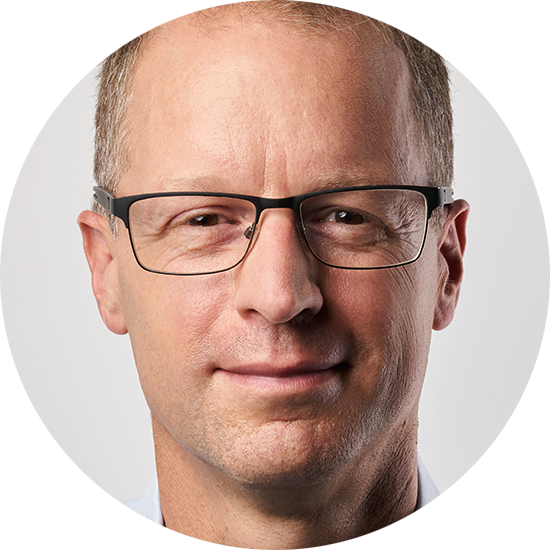

LIFE
Develop the mindset to live the life you want to lead
Unlearn the habits of a successful professional.
I want you to use the success you’ve earned to live the life you want to lead. But how do you figure out what that life looks like? Many people pursue success and money precisely as a way of avoiding this very question. Those of us who have achieved success in a professional career have been, from a very early age, so used to taking the next step on the ladder, which is defined for us by other people, that we often don’t think about why we are doing it.
It can also be intimidating. There are so many TEDx talks on ‘pursuing your passion’ or ‘finding your purpose’. It can feel second rate if you don’t have a lofty aspiration for your existence. But this is just repeating the same bind. Many professionals are so keen on external affirmation, that they can end up even trying to define their life goals in a way that will receive the approval of others.
So how can you get in the right mindset for figuring out what you want to get from life?
1. Your goals are for you and no-one else
This question of what you really want from your life is deeply personal and must be approached with complete authenticity. Some people want to chase a big hairy audacious goal: they may want to create their own business, become CEO of their existing business, establish a charitable foundation to help with communicable diseases in sub-Saharan Africa; or sail across the Atlantic.
For others it may be more prosaic. It could be the freedom to spend more time with their children or to live for a spell in another country. Others may not even have an explicit goal, but merely a sense of the qualities with which they want to live their life: with freedom, relationship based, learning, reflective, and so on.
Often we view our goals through the lens of what other people will think about them. We imagine explaining our goals to friends, colleagues and clients and perhaps fear judgemental reactions. Most of us who are successful professionals are strongly conditioned to seek the approval of others, which fulfils a deep and often hidden emotional need. This extends to approval for our life’s purpose. Overcoming affirmation addiction is probably the biggest challenge for successful professionals looking to live life on their terms. But it is the most vital. In her book The Top Five Regrets of the Dying, Bronnie Ware identifies the #1 regret as being: ‘I wish I’d had the courage to live a life true to myself, not the life others expected of me’. It’s not easy, but we must be determined to do it.
2. Don’t define yourself by your success
For many successful professionals this is quite close to saying ‘Don’t be yourself’. Achievement and success are core to our being, compensating, in many of us, for unmet and deeply buried emotional needs. But ultimately, success conventionally defined is a poor proxy for what it is we truly crave. And at some point it runs out of road and we are left again with the reality of ourselves. The problem with ambition is that its objective is often, whether we recognise it or not, defined by others rather than by what will actually lead to happiness. If we become too wedded to externally defined success measures then we will be upset when we fail to achieve them yet dissatisfied when we do.
This doesn’t mean we should shy away from ambitious goals and instead hunker down in a challenge-free comfort zone. But we need to define ourselves by the growth, learning and sense of purpose involved in pursuing a goal more than the success or failure of the outcome. The high from winning and losing is short-lived, the deep satisfaction from sustained growth and learning is not. This will also make us more resilient to changes in externally assigned status, for example at the point of a career change.
3. Learn the meaning of enough
‘Enough’ might be the most important concept on the road to financial freedom. If we don’t know how much is enough, we can never achieve it. But it can trigger a strong negative reaction. Enough sounds like settling. We’re told never to settle, we must always strive for more! Isn’t ‘enough’ the antithesis of ‘excellence’? We can’t deny that unrequited desires can be the driving force for achieving great things. But who reaps the benefits of those achievements?
How do we reconcile this? My reflection is that we have to separate extrinsic from intrinsic motivations. Never having enough is corrosive when measured by extrinsic matters like money, status and power. Never having enough when measured by personal growth, generosity and relationships is the opposite. But sometimes our sense of self can become so bound up in extrinsic factors that it’s hard to tell the difference. So we need to break this down, and in terms of extrinsic rewards like money, get a strong sense of when enough is enough.
For a small piece of brilliance on the topic, read the poem ‘Joe Heller’ by Kurt Vonnegut.
4. Be flexible — you will change
At work we live in a world of SMART goals, accountability, measurable outcomes. We often apply the same techniques to planning our lives. But it’s doubtful this approach can work over the timeframe of life planning. Harvard Psychologist Daniel Gilbert shows that we are very poor at predicting what we will want and enjoy in the future. Just think how different you are today from 15 years ago. Yet we assume that in 15 years’ time we’ll want the same as today. Decision theory tells us that options are most valuable when uncertainty is greatest. So ensuring you are creating and maintaining options in your life may be a better strategy then pinning all your hopes on a single goal.
When I started on the path to financial freedom in my mid thirties I didn’t have a specific goal about what I wanted to do. Instead, I had a set of qualities I wanted in my life and values that I wanted to live by: time for family and friends, space for health and personal development, opportunity for play, variety and experiencing new environments, intellectual challenge and making a contribution to society. My goal was to get into a position where I could pursue those interests however I wanted and at a time of my choosing, rather than being spat out, exhausted, at the compulsory retirement age of 60.
I had some ideas about what specific activities this might involve, and some of those even ended up being accurate 15 years later. An idea that I’d return to academia has been a constant theme and has indeed come to pass. But coaching, and financial coaching, which are such big parts of what I do now, were not even on the horizon until the last couple of years. Nor were my work on responsible business with think tanks, regulators and investors. I had no idea that cycling would introduce me to a whole new social network, that I’d find so much enjoyment in taking up tennis, or that I’d discover the joys of live football. The point is that we change, and what we want from the future changes with us. So don’t feel you have to know everything you want to do.
5. Have a target for your timescale
Time goals do matter, because they have a first order impact on the mathematics of savings and investment. Without the discipline of a time goal, drift and lifestyle ratchet can cause a longer working life by default. So even if you don’t know exactly what you want to do, knowing when you might want to do it is important.
My only specific goal related to the timeframe over which I wanted to have options: being in a position by my mid-to-late forties to be able to take my life in a different direction when the time was right. This age was an important milestone as I felt it would give time for a whole different career to open out in front of me after PwC if that’s what I wanted. So I did have a timeframe by which I wanted to be able to have the option to do something different, even if I dind’t know exactly what that would be.
6. Enjoy the journey — the path to financial freedom brings its own rewards
The FIRE movement (financial independence retire early) defines financial independence by a formula. You have achieved FI when your assets equal 25x your annual expenses. Based on the so-called 4% rule, this formula defines the point at which the investment returns cover your expenses in perpetuity, so you can live off your assets. My problem with this approach is that it can too often create a mindset of escape from the present, requiring self-denial today in order to save your way to future freedom. Being too focussed on the future goal can distract from the enjoyment of getting there.
I’ve found that financial freedom is a mindset that can arrive much earlier than financial independence. Once I had a clear plan for what I was trying to achieve with my life, the options I wanted to create, and how I’d achieve that financially, then even though I didn’t really know many of the specifics, my attitude changed. The freer I became financially and psychologically from work the more I started to enjoy it and the more successful I became. I was lucky to work for a great firm, in PwC, that enabled a flexible approach to blend interests inside and outside the firm. As a result of this I actually ended up staying in my professional career for longer than I would have expected 15 years ago.
7. Be reflective and curious
The answer to what we want from your life comes in many different forms for different people. For some it will be a clear plan with identifiable goals outcomes and actions. For others it will be a sense of direction or the creation of options. For others it will simply be a way of being. The ability to have options is itself a goal.
How you decide what you want in life and how you go about achieving it require a different approach to the one that has driven our success. External affirmation, outcome focus, SMART goals, pressure to perform: all these mainstays of our professional life are positively unhelpful when asking life’s most important questions. We need a more reflective mode, intrinsically motivated, curious, tolerant of uncertainty.
Figuring out the life you want to lead requires a different mindset to the one that has driven your professional success to date.
